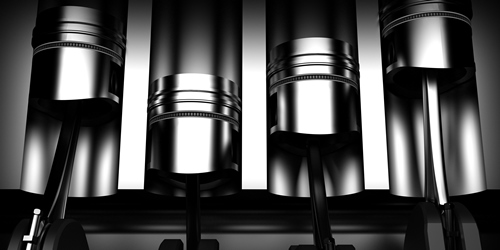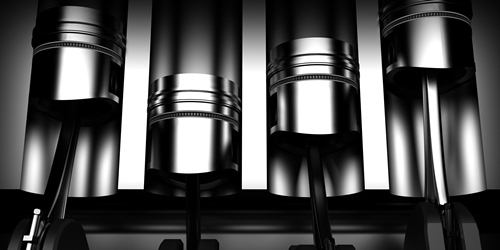Many-Body Localization Goes to Work
In disordered systems of interacting quantum particles, interference effects can restrict how far the particles move. This localized “freezing”—known as many-body localization (MBL)—prevents the system from reaching thermal equilibrium. Having observed MBL in recent cold-atom experiments, researchers are looking for ways to use it in applications. Now, Nicole Yunger Halpern from the California Institute of Technology, Pasadena, and her colleagues show theoretically that MBL thermodynamics could help drive a quantum engine.
In their model, the engine consists of a chain of trapped atoms, each in its own potential well. The atoms interact in such a way that the spin of one atom can be transferred to a neighbor, causing its spin to flip. But such spin “hopping” becomes restricted—the spins become localized—when disorder is added by spatially varying the depth of the trapping potentials.
To obtain work from this system, the researchers propose a four-stroke cycle resembling the Otto cycle that car engines undergo. In place of the Otto cycle’s expansion and compression strokes, the MBL engine ramps up and down the level of localization of the spins by tuning the disorder in the potential. Through contact with hot and cold reservoirs, the engine produces work that could, for example, charge a battery. The researchers show that localization limits the flow of heat out of the engine to small energy “jumps,” which helps avoid unwanted power fluctuations.
The team’s calculations show that the MBL engine has about the same energy efficiency—but a lower power density—than the conventional Otto cycle. When compared to other quantum engines, the MBL engine is more robust against perturbations. In addition to mechanical work, MBL systems might also be able to perform other thermodynamic tasks such as refrigeration.
This research is published in Physical Review B.
–Michael Schirber
Michael Schirber is a Corresponding Editor for Physics based in Lyon, France.





